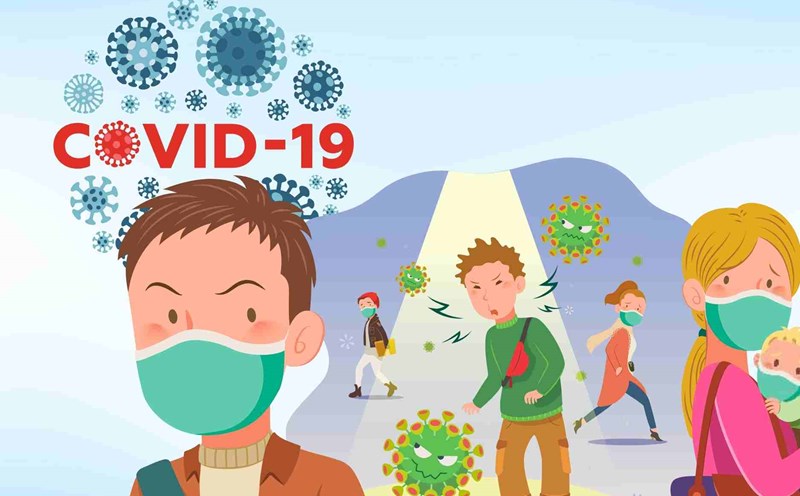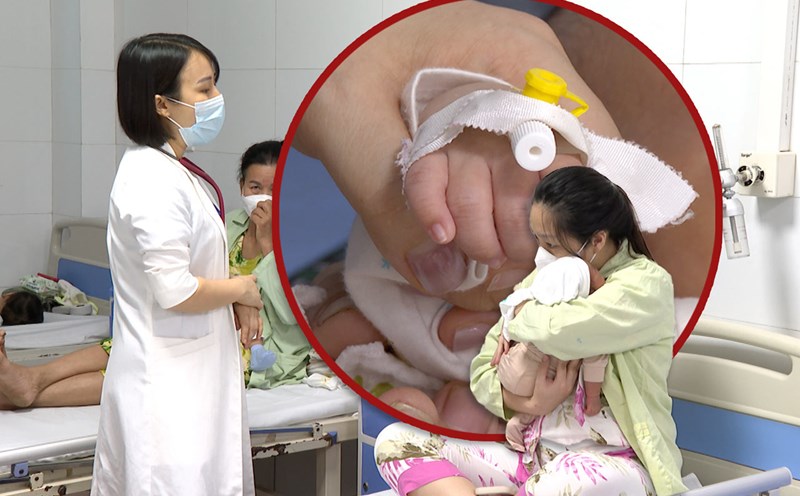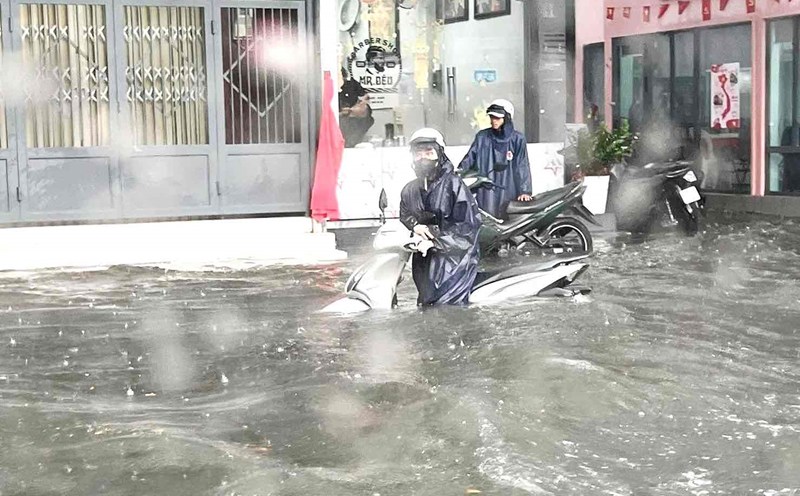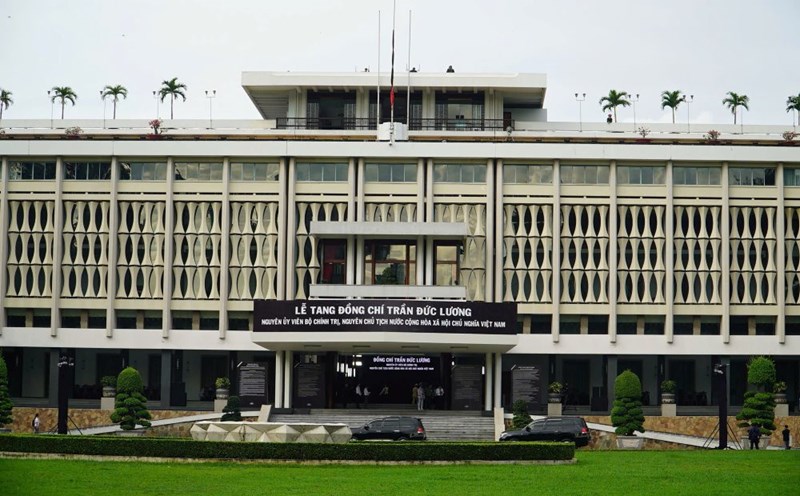People hospitalized often due to underlying diseases or poor health
Patient L.X.H (71 years old, Tien Lu district, Hung Yen province), currently being treated at the Infectious Diseases Department, Dong Da General Hospital, said: I had a fever of over 39 degrees, coughed a lot, had difficulty breathing and was found to be positive for COVID-19 as soon as I was admitted to the hospital.
Dr. Nguyen Thai Minh - Head of the Infectious Diseases Department of Dong Da Hospital, said: "Facing the trend of increasing infections, the hospital has fully prepared medicine, chemicals, machinery and maintained 3 isolation rooms to be ready to respond to all situations, especially serious cases or people with underlying diseases. Be proactive, not subjective but do not panic that medical facilities can seriously implement the work of admission, diagnosis, treatment and infection control.
At Ha Dong General Hospital, Dr. Tran Thi Kim Anh, Department of Tropical Diseases, said that the department is treating 8 patients with COVID-19, many of whom have underlying diseases and have been fully vaccinated. The patient mainly had upper respiratory infection, with only 1-2 cases of bronchitis complications. Patients often return to negative after 1 week of treatment.
In the past week, the Infectious Diseases Department of Thanh Nhan Hospital has recorded a slight increase in the number of COVID-19 hospitalizations. The Department of Pediatrics of Thanh Nhan Hospital currently has 7 pediatric patients with COVID-19, including a 1-month-old newborn baby.
Ms. Le Thi Doai (Cau Giay District, Hanoi) - the child's family member said: "My child was infected with COVID-19 from his mother, but it is not clear where his mother received it from. When the mother tested and saw two lines, the family immediately separated the child. During the illness, the child had a fever, cried, and ate little, making the whole family extremely worried.
Associate Professor, Dr. Hoang Bui Hai - Head of the Department of Emergency and Intensive Care (Hanoi Medical University Hospital) - said that Hoang Mai facility of Hanoi Medical University Hospital is treating 20 cases of COVID-19. The patients all have underlying diseases.
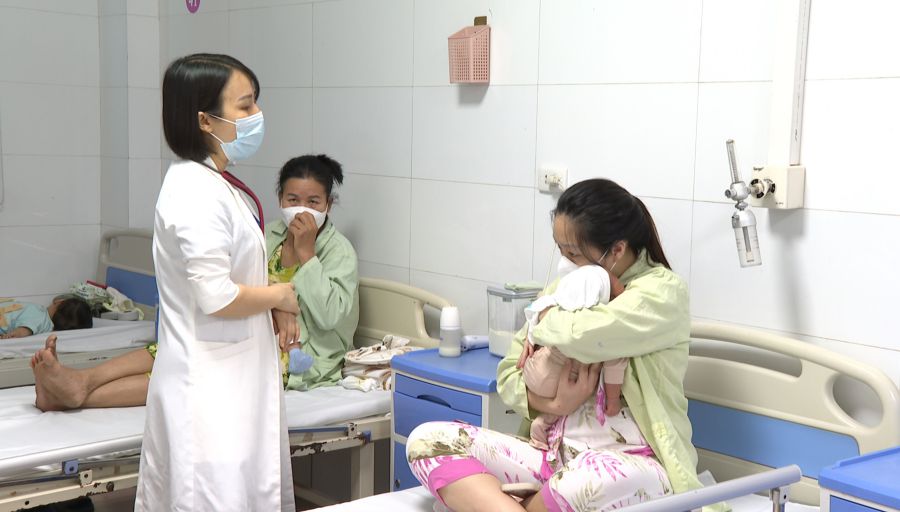
COVID-19 becomes a circulating disease, should not be too worried
Associate Professor, Dr. Tran Dac Phu - former Director of the Department of Preventive Medicine - affirmed that COVID-19 is currently a group B infectious disease, has become a circulating disease and is cyclical like seasonal flu. People should not worry too much when there are scattered cases in the community, no serious cases or deaths have been recorded.
Doctor Truong Huu Khanh - Vice President of the Ho Chi Minh City Infectious Diseases Association - said that recording COVID-19 cases after the epidemic ends is normal. New variants such as XEC are popular in Thailand and may have appeared in Vietnam, spreading rapidly but causing mild disease, with severe cases mainly in people with underlying diseases.
Currently occurring variants such as LP.8.1, JN.1, XBB 1.16 or XEC are likely to spread but do not increase the mortality or hospitalization rate compared to the previous Delta strain. Most people have basic immunity, so the risk of serious illness is very low.
The group at risk of serious complications including the elderly, chronic lung disease, immunodeficiency, diabetes, cardiovascular disease needs to be more protected and monitored carefully when the cold season and viruses develop strongly.
Dr. Khanh emphasized that people do not need to store COVID-19 test kit at home. Testing should only be done when there are signs of doubt to accurately assess the epidemic trend.
COVID-19 is currently considered a common respiratory virus, causing no concern if a new strain does not appear without community immunity. People should not arbitrarily use antibiotics without a prescription, only use mild symptomatic drugs such as fever reduction, sore throat reduction, and nasal congestion prevention.
As of May 2025, Vietnam has vaccinated more than 266.5 million doses of COVID-19 vaccine for the majority of the population. However, old vaccines from the Delta era are no longer highly effective with the current Omicron variety. The most effective disease prevention measure is still wearing a mask and washing your hands thoroughly.
COVID-19 is classified as a group B, so people with the disease only need to be quarantined at home, limit contact, not strictly isolated as before. The hospital continues to conduct testing, isolation and treat similar diseases to other respiratory diseases.
Hanoi CDC Deputy Director Khong Minh Tuan warned that the epidemic is still at risk of breaking out if subjective. People need to raise awareness of health protection, strictly wear masks in public places and medical facilities, maintain good personal hygiene and immediately go to medical facilities when there are signs of doubt.
Experts predict that in the next 2-3 weeks, information about COVID-19 will decrease due to no worrying variations. New dangerous viruses may appear after many more decades.
COVID-19 has become a group B infectious disease with a circulating nature like the flu. People should not worry or panic too much, should maintain healthy living habits, proactively prevent by wearing masks, washing hands, getting vaccinated when recommended, and treating properly when suffering from the disease to protect their health and safety.

